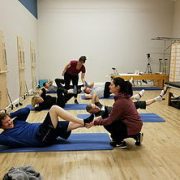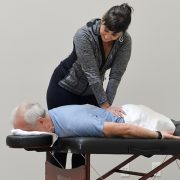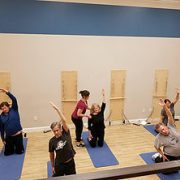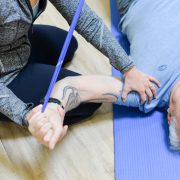Do You Really Need an MRI?
Do you really need an MRI for that?
This is probably the number one question we get from clients – especially those who suffer from back or neck pain. Believe me, I get it! When you have pain that won’t go away, and it’s shooting down your arm or leg, often causing numbness and tingling – it’s scary! Why wouldn’t you want an MRI? An MRI tells you everything and then you know exactly what to do to fix the problem, right?
Not necessarily….
Don’t get me wrong – MRI’s are an amazing advancement in medical technology.
MRIs can easily detect abnormalities in your brain and spinal cord. They can find tumors, cysts and other abnormal growths in various parts of your body. They can even detect certain heart problems and liver disease. When you don’t know exactly what’s wrong, but you are showing signs that something is not right, an MRI is an amazing tool to help doctors detect the source of the problem.
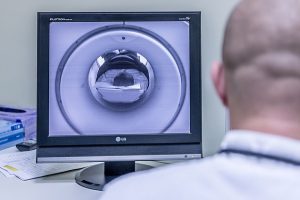
The problem isn’t with MRI’s – they do their job magnificently. The problem is with the way they are being used and prescribed.
Let me explain.
When it comes to neck and back problems, for example, what most people don’t realize is that 70-80% of all spine and musculoskeletal problems are what we call “mechanical” in nature. That means that your problem has to do with the way you move, bad postural habits learned over the years, or muscular and joint imbalances like weakness and poor flexibility. Many of these mechanical “wear and tear” problems don’t show up until your 40’s, 50’s or 60’s – because it takes a while for bad movement patterns or bad postural habits to take their toll. The best way to figure out a movement problem is with… well… movement!
But how do you know that it’s a mechanical problem and not something more serious?
The easiest way to find out is to ask a physical therapist (we’ll get to that later). But the most common sign is that the problem comes and goes. Some days you feel great, and then other days you’ll be experiencing severe pain that interferes with your routine and activities. When the pain comes and goes like that, it is usually NOT due to something serious. A tumor, or a growth, or a broken bone doesn’t go away. If you feel the pain or discomfort constantly and nothing – not even medication – changes your symptoms very much, that’s an indicator that you should see a doctor and may need an MRI. But remember what I said – 70-80% of all musculoskeletal problems are mechanical in nature and NOT the result of a significant injury or dangerous growth. To sum it all up – MRIs are not needed as often as they are prescribed.
So what’s the big deal about getting an MRI? Isn’t it good just to be extra-cautious?
In theory – yes. But here’s what actually happens. MRI’s are super powerful and amazing tools. Because of this, they see everything – including normal age-related changes, such as arthritis, stenosis, degeneration of joints, and even bulging discs. These typical and often unrelated imperfections show up in the MRI and are frequently blamed for the movement problem.
So back to our original question: Do I really need an MRI?
If you’ve had a bad accident, fall, or trauma – then you’ll want to seek immediate medical attention and an MRI is probably a good idea. But if you are dealing with chronic, long-standing aches and pains that have come and gone over the years and have recently gotten worse – there is a 70-80% chance that it is a movement problem that has finally caught up to you. It’s best to see a movement expert for this. A professional and specially trained movement expert (like a specialist physical therapist) knows how to tell if the issue is NOT a movement problem and can send you to a doctor if necessary. But when you automatically assume that you need an MRI first, you end up spending a lot of money (the average cost of an MRI is $150,000 and you have to pay a portion of this), and often get prescribed unnecessary surgery or procedures for those normal effects of aging that show up in the MRI and get blamed for your problem.
If this story sounds all too familiar, or you’ve been told that you have to get an MRI, get in touch! We are a specialized physical therapy practice that is well-known for helping people with this exact dilemma and we know how to tell if you need an MRI or not.
Or – download our FREE guide to back pain, written by Dr. Carrie Jose, Portsmouth’s leading back pain specialist and physical therapist. This guide contains her BEST tips – the ones she gives to clients – that will help you get rid of back pain WITHOUT things like pain pills, procedures, and of course MRI’s.


